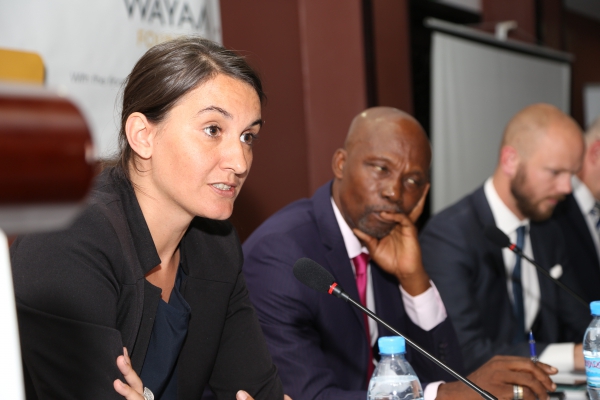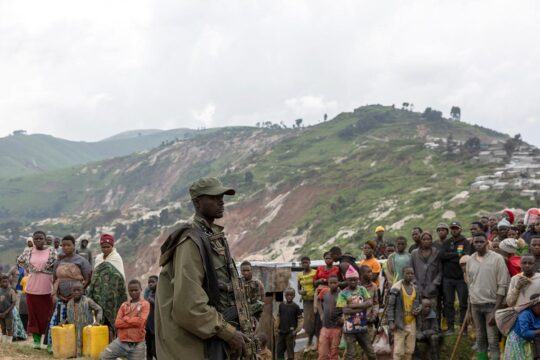Is there a link between illegal trafficking and so-called “international” crimes like genocide, crimes against humanity and war crimes? That is not always the case, but the looting of natural resources sometimes gives armed groups the means to commit grave human rights abuses. Emmanuelle Marchand, senior legal counsel to NGO Civitas Maxima, urges international criminal justice to pay more attention to organized crimes that could in some cases be categorized as “international” crimes. She explains in this interview with JusticeInfo.
Are there current situations in Africa where organized cross-border trafficking is fuelling international crimes, or vice versa?
Unfortunately there are many examples, since illegal trade in natural resources has become one of the main ways for armed groups to fund wars and continue them. The most striking recent example is the Democratic Republic of Congo (DRC) where various armies, rebel groups and external actors have plundered its mineral resources whilst contributing to violence and exploitation during the region’s wars.
In the cases of eastern DRC and the Central African Republic, is it possible to fight against serious human rights abuses without at the same time fighting illegal cross-border trafficking?
As I said before, trafficking in natural resources by armed groups feeds and prolongs violence. For example, it often happens that illegal mining is accompanied by use of forced labour and sexual violence. Fighting illegal trafficking at the same time as prosecuting international crimes can cut off funding for the war and so help bring it to an end.
At a recent symposium organized by the Wayamo Foundation in Arusha, Tanzania, you talked about your NGO’s experience in fighting both types of crime in a case linked to Sierra Leone. What lessons can be drawn?
I talked about the case against Michel Desaedeleer, initiated by the investigative work of Civitas Maxima director Alain Werner. It concerned the involvement of a Belgian businessman (Michel Desaedeleer) in the illegal blood diamonds trade, which partly helped to fund the RUF (Revolutionary United Front) rebel group during the civil war Sierra Leone. In this case we looked at the illegal cross-border diamond trade as an international human rights crime, because trafficking in natural resources can constitute the war crime of looting if it takes place in a context of war.
Do you have any specific recommendations for international criminal courts with a view to fighting both types of crime?
The jurisdiction of the International Criminal Court (ICC) is limited to the crimes in its Statute, namely genocide, crimes against humanity, war crimes and the crime of aggression. Unfortunately most crimes of illegal cross border activity are outside their jurisdiction. Attempts to introduce crimes like drug trafficking into the ICC Statute met with strong opposition and so the final text of its Statute limits the Court’s jurisdiction to the four crimes I mentioned. But the ICC can take up certain illegal trafficking cases as war crimes. And so I would recommend that the ICC concentrate more on these crimes.







